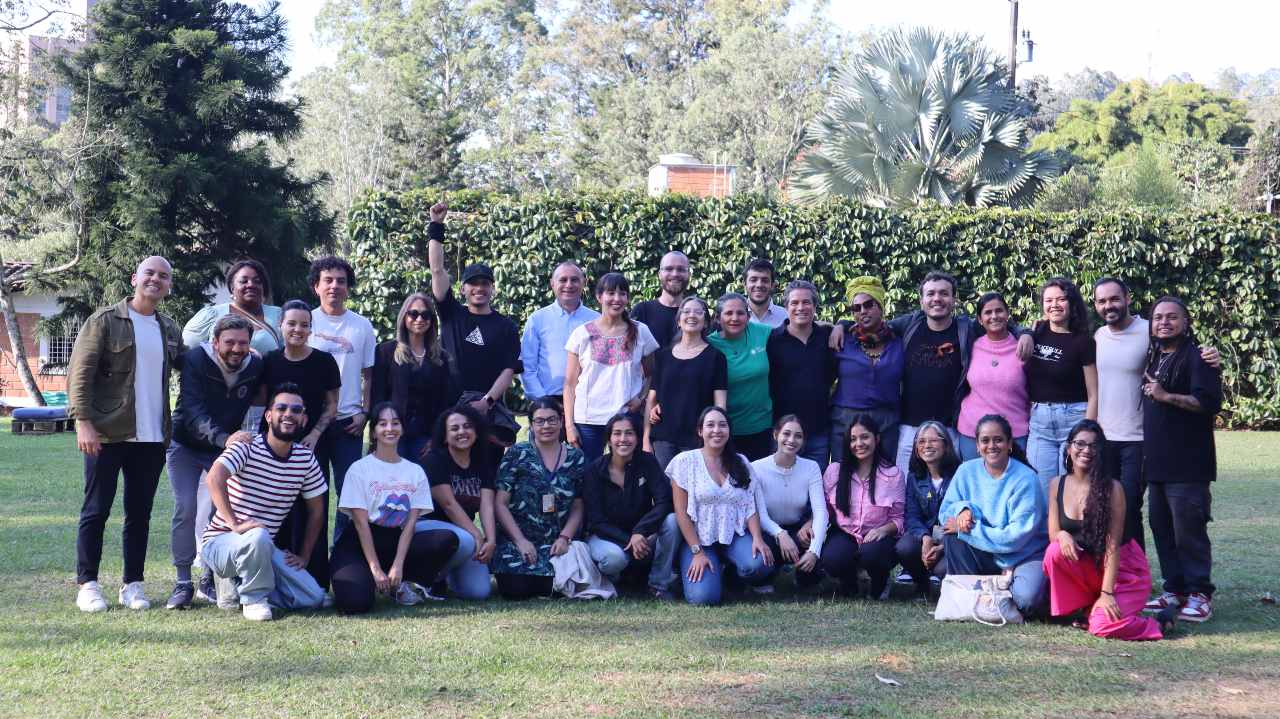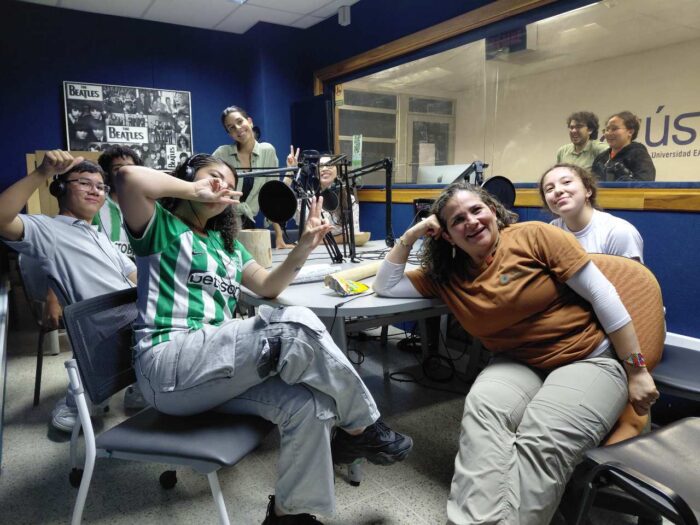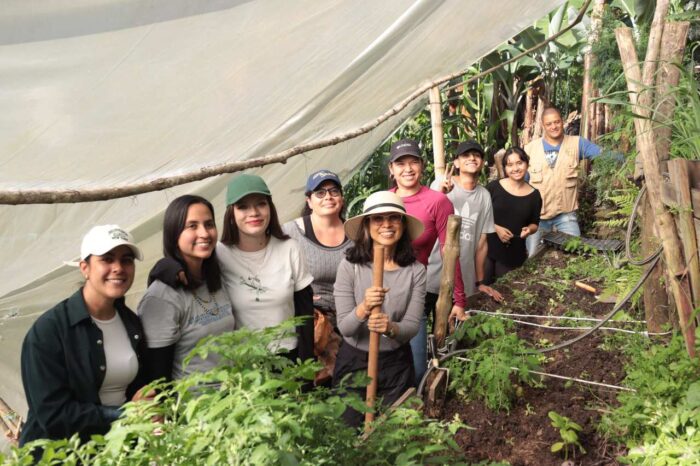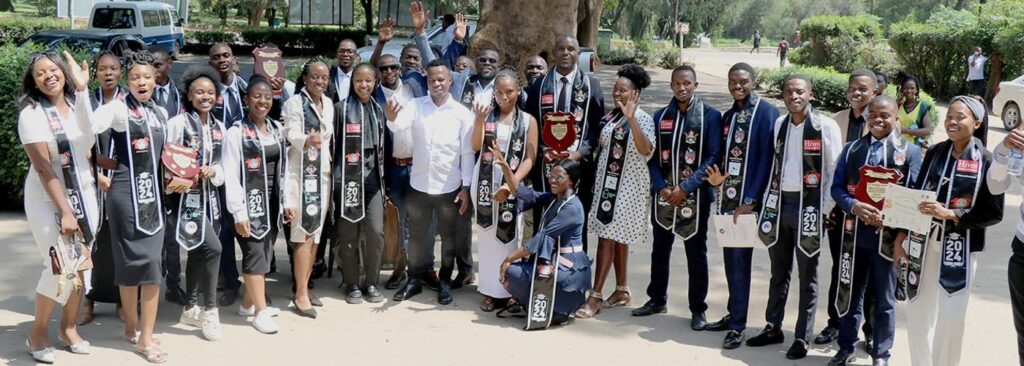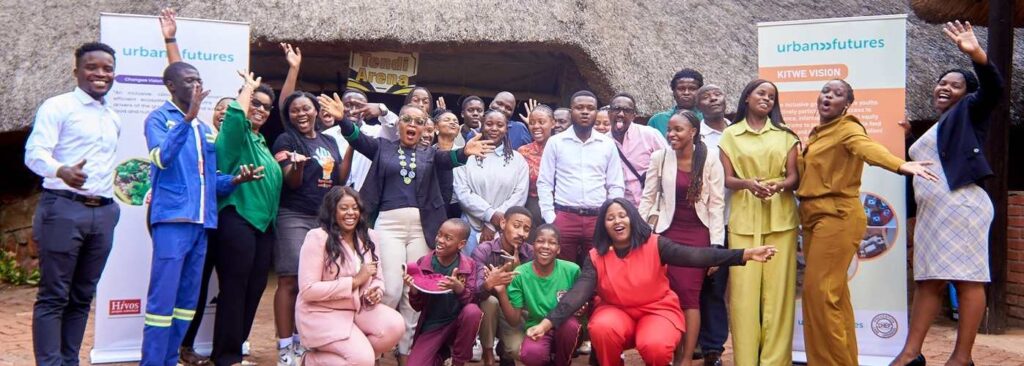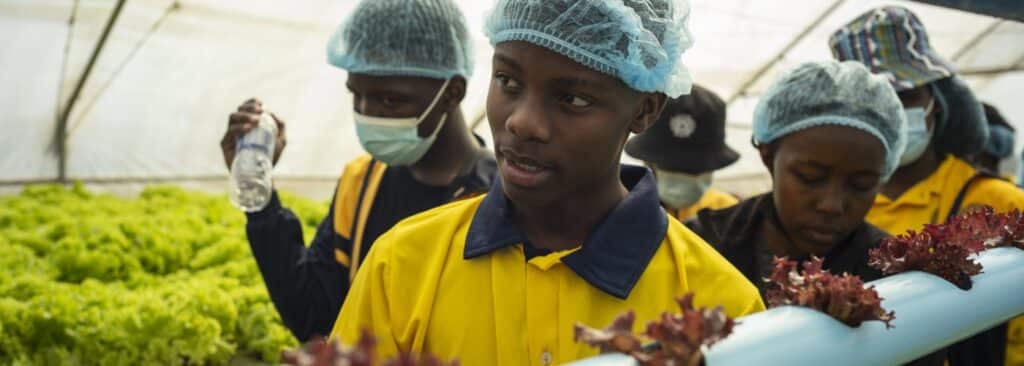As part of the Urban Futures Program, Fundación Mi Sangre, our local partner in Medellín, led an innovative learning and co-creation lab to create stories about regenerative food consumption.
By Ana Carolina Benítez, Linking & Learning Officer of Urban Futures Latin America, and Daniela García, Communications Facilitator of Fundación Mi Sangre
The lab, called the Narrative Kitchen, brought together 29 participants—mainly women and young people—from 28 organizations in the public and private sectors, academia, and civil society. Its purpose: to foster trust, peer learning, and community-building while crafting narratives about food consumption and food systems transformation. The sessions went from personal stories to collective analyses, ending in pinpointing the key assumptions and root causes that shape current food consumption and production.
The lab was structured around four stages:
1. “Marinating Encounters” — to recognize local knowledge and share personal experiences with food
2. “Exploring and Tasting References” — to reflect on how narratives influence our food choices
3. “Co-creating Recipes with Many Hands” — where participants developed concrete strategies to promote sustainable practices
4. “Media Festival” — training in communication tools (podcasting, self-publishing, video production, and digital communication) to amplify the voices and messages that emerged from the lab
This collaborative journey was more than a learning experience; it also created strong networks and planted the seeds for joint communication efforts, like the first episode of the podcast Stirring the Pot (link below).
A podcast to spark conversations
Stirring the Pot is a record of this process: a podcast co-created with people, organizations, and initiatives from Medellín, united by the desire to build a regenerative, inclusive, and resilient food system.
The first episode invites us to ask:
- What stories lie behind a recipe passed down from generation to generation?
- How can we choose and consume food more consciously?
- What memories arise when you smell cooked corn?
The episode features the voices of young people from the EAFIT Children’s University in Medellín and adults actively engaged in the Narrative Kitchen. Over two months, nearly 50 people came together as equals to share memories, questions, and flavors. Together they wove a collective story about corn: its colors, myths, emotions, and its place in our kitchens, bodies, and cultures.
Stirring the Pot does not seek definitive answers. Instead, it opens up conversations about what we eat, what we forget, and what we might care to have again. Through games, interviews, and shared scenes, the podcast reflects what becomes possible when different generations and experiences meet to imagine a different future for food.
🎧 Listen to the episode here (only available in Spanish):
👉 Meter la cucharada – Spotify
Living networks: the narrative kitchen as a driver of systemic change
The Narrative Kitchen triggered spontaneous collaborations that aligned closely with the Urban Futures program. One was an educational project on food in local neighborhoods by professors of Gastronomy and Professional Cooking at Colegiatura University and a young woman from the Intercorregimental Youth Environmental and Cultural Network. Others opened new spaces for visibility, like the alliance between alternative media outlet Contraportada and the Women and Families Collective El Vergel to promote their sustainable food projects. Some created rural-urban connections, like attracting rural leaders to events organized by No solo de pan vive el hambre, a project that researches and communicates about Colombia’s national pantry (i.e., list of essential food items for a household).
Finally, the Narrative Kitchen process involved people from El Fogón de Liderazgos (Leadership Hearth), another Urban Futures initiative aimed at activating collaborative networks and training young and women to be leaders in the Medellín city region.
This web of collaborations shows how the Narrative Kitchen not only planted new ideas but also activated relationships and processes that strengthen the systemic impact of the program, paving the way for collective, sustained food system transformation.

